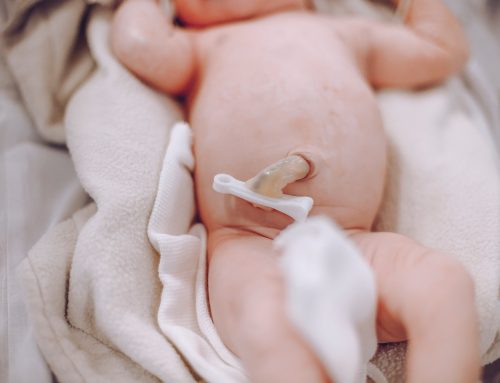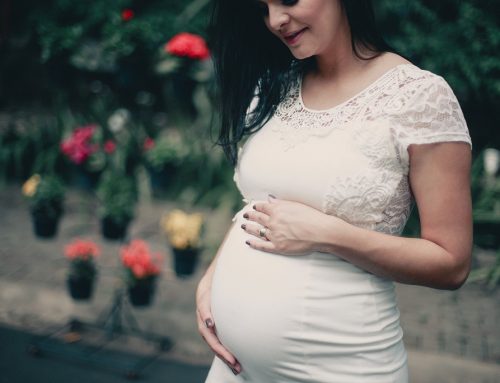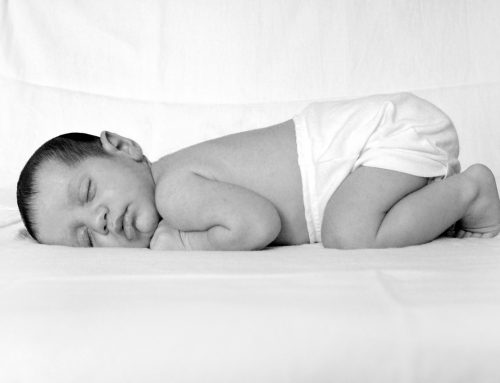A daycare is virtually your baby’s home away from home. The nurturing your baby gets at the daycare will influence his physical and emotional well being [1]. When I had set out to choose a daycare for my then 6 months old baby, I had a few selection criteria (cleanliness, proximity to home, quality of caregivers and willingness to feed expressed milk). Over the time, I updated this list of criteria based on the experience of many fellow moms who went through the same drill. It helped me immensely when we moved to a new city and were searching for a daycare for Anu.
If you are on the critical mission to select a daycare for your little one, hope this list and the related questions to ask are useful in your selection process.
Checklist for shortlisting a daycare centre
I would highly recommend a visit to a daycare centre before finalising. If required visit more than once, till you are satisfied with the recce. Drop without an appointment :-). Ask for a recommendation from like-minded people parents in your contact network.
When you visit a daycare or in the process of shortlisting, the following points may help you with the selection:
- Location
- Personnel
- Food & feeding
- Daily routine & activities
- Toilet training policy
- Cleanliness
- Safety
- Quality of Caregivers
- Parent caregiver interaction
- Screen-time
- Sickness policy
- Timings
- Cost
- Daycare with pre-school
- Gut feeling
Do not hesitate to ask all relevant questions to the daycare manager before choosing a daycare and check (or re-check) for things that you feel are important for your child’s care.
Location:
If you are a working mother or plan to go back to work soon, daycare near your office may be a better choice. That’s true, especially if primarily you are going to drop/pick-up your baby. A daycare close to workplace gives you more flexibility regarding managing pickup and drop or reaching the facility in case of a baby related emergency.
A daycare near home may be more suitable if you are not working, or working but have a reliable help at home to pick up/drop the baby from daycare. In this case, you can also avoid the logistics of daily commute with the baby.
Also, if you plan to breastfeed your baby during his stay at the daycare, it may be feasible with a centre in your proximity (if you are working then near your workplace, else near your home).
Personnel:
Find out the Caregivers:Baby ratio and the total number of babies (and caregivers) in the centre.
If your child is less than a year old, it may be better to have separate caregivers for infants. An infant less than 1-1.5 years old, needs more personal attention (for a frequent diaper change, feeding, putting to sleep etc. compared to toddlers above 1.5 years of age). A ratio of 1:2 or even a ratio of 1:3 (that is one maid for 2 or 3 babies) may work well for infant care. Older kids need lesser personal attention and a ratio of 1:5 or 1:6 can be sufficient.
Are the caregivers/teachers qualified or trained in childcare?
Does the childcare facility have Founders or Co-ordinators present through the day, apart from maids and caregivers/teachers? In the wake of incidences of negligence at daycares that we read in newspapers these days, it may be beneficial to have an accountable stakeholder supervising the staff through the day.
Food & feeding:
Most daycares these days provide meals (including breakfast, lunch, snacks). Many do not allow outside food unless there is a dietary restriction. Are you comfortable with your baby eating food from the daycare? If not, will the daycare allow home cooked food for your baby? Providing home-cooked meals may help you control the quality as well as meal preferences, especially for an infant.
But as the baby grows, he may benefit eating the same meal as his fellows (kids learn to eat from the plate, eating by self, etc. watching their peers).
If the daycare provides meals, please check for the menu (for nutrition and variety) and who cooks the meals (in-house or central kitchen). You may also want to check if the centre encourages baby to eat by self and from what age.
Do you plan to breastfeed when the baby is in daycare? If yes, then please check if the childcare centre has the provision for same. If not, will they be okay to give expressed breast milk? Giving expressed breast milk requires the additional efforts of storing it at cold temperature, and warming it (not heating) before feeding.
Daily routine & activities:
If your baby is going to be at the daycare for more than 2-3 hours daily, you may want to find out about the planned, unplanned and group activities for baby through the day. Check the kind of toys available for the babies to play with (quality, developmentally appropriate, sufficient for babies at the centre).
Does the daycare have activities like music, dance, sports, field trips, etc.? Is the cost for such activities inclusive in the fees?
Does the childcare centre have a separate play area for different age groups? Is the play area spacious enough? A daycare usually has a guiding philosophy when carving out play area (e.g. simple real estate optimisation, or allowing baby to explore or ample space to run around, etc.). The play area should provide an opportunity to engage the baby and expend his energy.
Do check the sleep arrangement (sleeping area, own cot, bedding). What is the nap time? If your baby is under 1 year of age, will your infant be encouraged more than one nap time (infant less than a year old may take multiple naps through the day)? Remember that nap-time during the day affects baby’s bedtime at night. So having a sleeping arrangement which suits your baby can be crucial.
Toilet training policy:
Are you that parent who is eager to keep baby off diapers as much as possible? Especially useful in India’s scorching summers when babies are prone to diaper rash. If your baby is not yet toilet trained, you may want to check the toilet training policy as well as diaper free time given daily to babies.
Also, check if toilet seats are suitable for babies. Do take a look at the washrooms and check for cleanliness. An unhygienic shared toilet area can be a breeding ground for germs.
Cleanliness:
One of the most crucial criteria for selecting a childcare facility is the cleanliness of that place. Improper hygiene at the facility will affect your child’s health and increase chances of catching an infection. What is your first impression of the general cleanliness of the childcare facility when you visit? Enquire about the cleaning routine, including cleaning of the kitchen (if they have one), toys, baby bedding, etc..
Safety:
One of the most prominent fear parents in urban India have when sending their baby to daycare is the safety of their child. Check the security arrangement of the premises at the entry/exit points. Are there any baby trap points (e.g. balcony/stairs without safety rails ). Is the furniture appropriate for children and have they done adequate childproofing?
Many childcare centres these days allow CCTV viewing of the daily activities. Some are strictly against it. Do you want to avail a video feed facility?
Babies, in spite of careful attention, are prone to accidents (choking, scraping, physical injury, falling etc.). The caregivers should ideally be trained for first aid and CPR to handle such situations (let’s hope such a situation never arises).
Does the daycare have fire extinguishers on the premises in case of a fire? If the daycare has an outdoor play area, is it free from obvious hazards, e.g. rusted objects, glass, etc.?
Quality of caregivers:
What is the general vibe between the kids and teachers/caregivers when you visit the childcare facility? Do the childcare providers seem patient and receptive to the kids at daycare? Enquire about how are children disciplined? Are you comfortable with the disciplining methods? How are the babies pacified, especially the new joiners?
How the children interact with caregivers is something you will learn over time. The quality of childcare will reflect in your baby’s behaviour. After your baby joins a daycare, do regularly evaluate if your child is happy or not. If not happy even after the settling period, discuss with the daycare management and be open to change the daycare if status quo continues.
Parent caregiver interaction:
It should be easy to contact co-ordinators at the daycare (you may be late for pickup, you need to give specific instructions for a day, etc.) as well as send notes, reminders etc.. An ease of interaction is important with an infant, during sickness,or child with special dietary or childcare needs.
Many daycares provide a daily update about your baby’s day. Some provide regular updates till a child settles, or can communicate well. Have a consensus on the kind of updates you can get.
Screen-time:
Many daycares these days have TV/Computer, mostly for viewing the educational material. If the daycare does allows screen-time (and you are okay with it), inquire about the frequency and duration of such screen-time. Also, make sure you are aware of the kind of programs kids watch at daycare.
Sickness policy:
What is the daycare’s policy for sick child’s care? Kids are susceptible to infections, and hence many daycares do not allow children when they are sick, especially with contagious infections. If you are working, the sickness policy may affect you more. So it is essential to know their policy in advance to help you arrange for baby’s care in case of sickness. Also, check if they are okay to administer prescribed medications.
Timings:
Check what the in-time and latest out time are. Check if they allow baby to overstay by a couple of hours (on some unforeseen occasions that flexibility may be useful)? Is there a charge for late pick-up? Also, does the daycare offer drop to the home facility?
Do you have a working day even on the weekend? If yes, you may want to select a daycare which is open even on the weekend (or at least one day of the weekend).
Cost:
A significant factor when choosing a daycare is the cost of childcare. Enquire about the fees and any additional charges (field trips, events, one-time costs etc..) to help you plan your family budget.
If you are working, with the new maternity law in place, does your company provide a subsidy for childcare? You can opt for a daycare which has a tie-up with your company if it suits your childcare requirements to avail a corporate discount if any.
Daycare with pre-school:
Many of the daycares these days also run pre-school (of course there are also less-formal/home-care type facilities or a daycare only facilities). If your baby is less than 2 years old, do you intend to send your child to such a pre-school in the future? Kids from childcare facility generally (but not necessarily) get preference during admission process to pre-school. If you are looking for the daycare facility only, will the management be okay if your child opts for a different pre-school later?
You should also consider how long you want the association to be with the daycare. From a logistics perspective, it may be good to have a daycare (also called after school care) and pre-school at the same location. Makes it easier for the child too. But its entirely your choice (a great daycare may not necessarily run a pre-school which you like). But it is an essential pointer while shortlisting a daycare/preschool, and to avoid some trouble with admissions at a later stage.
Gut feeling:
The most important thing when shortlisting a childcare facility is your gut feeling. Irrespective of the reviews or personal recommendations from fellow parents, it is essential to follow your gut feeling when shortlisting a daycare. When you visit the facility, do you get good vibes about the place? Do you think the childcare facility is suitable as per your baby’s personality?
As a parent, you should feel assured that your child is in good hands at the childcare facility. You should have the comfort that your child will be nurtured and loved by caregivers and the kids at the daycare. Trust your gut feeling!
Start your daycare search early
It is recommended to start searching for a daycare at least a month or two before you actually plan to start the daycare. Firstly, it takes time to finalise a daycare and secondly (and more importantly), there should vacancy at the childcare facility of your choice.
Hope these 15 pointers help you in choosing a daycare suitable for your baby!





Excellent pointers Rohini. Everything is articulated brilliantly!
Thanks Priya 🙂